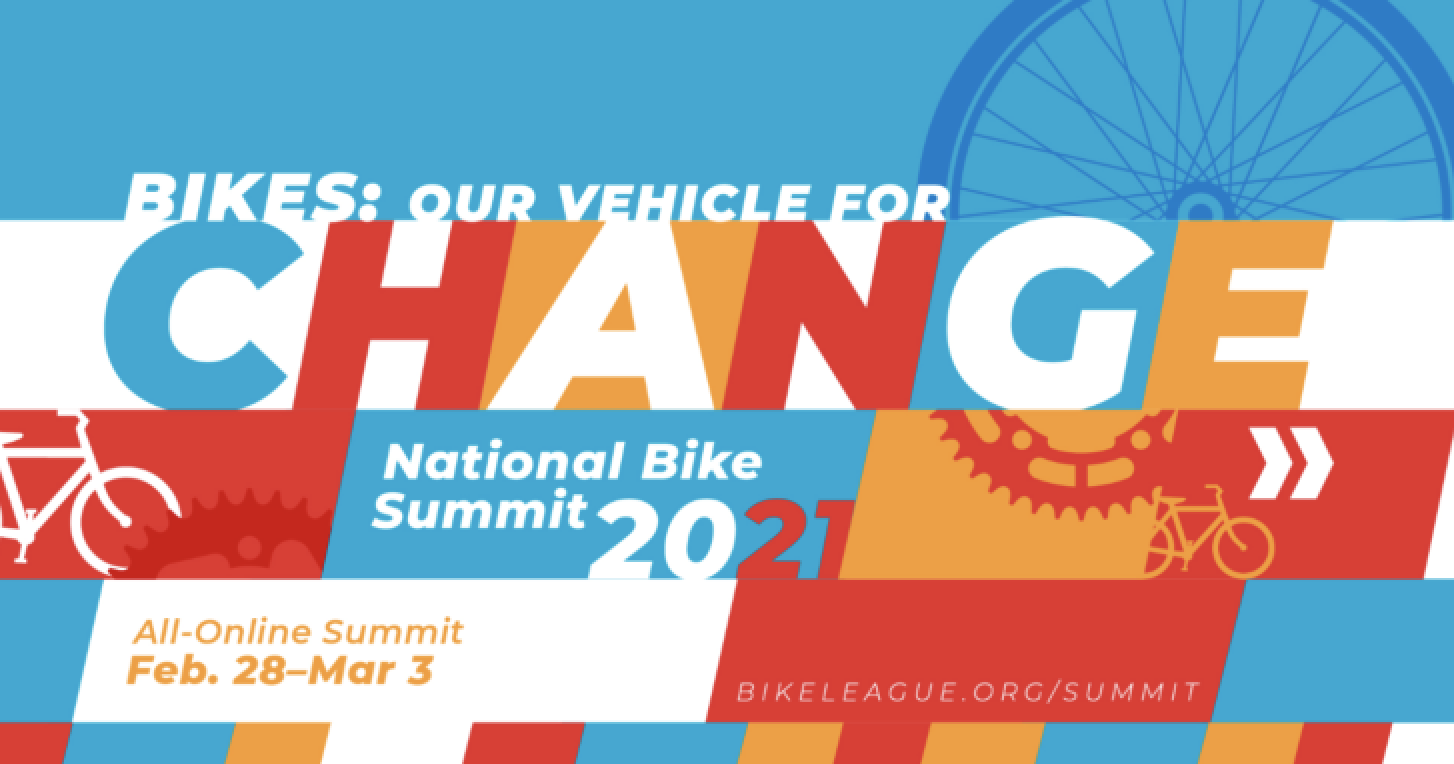The 2021 virtual National Bike Summit took place earlier this month and Bike Fort Collins was grateful to take part in many of the workshops and speakers panels addressing some of the most pressing issues in bicycle advocacy today. Fort Collins own, Erika Benti (Active Transportation Professional- Students, Colorado State University), presented on virtual education and encouragement, Charles Brown (MPA, CPD) delivered a very poignant, timely, and heartfelt talk titled, “Arrested Mobility – Exploring the Impacts of Over-policing BIPOC Mobility in the US”,

and keynote speaker, Secretary Peter Buttigieg (US Department of Transportation) rounded things out with his ‘fireside chat’.
March 3, 2021 marked Lobby Day and Bike Fort Collins, along with a number of advocates throughout the state including Bicycle Colorado, Bike Jeffco, and PaCMan of Manitou Springs, brought these three key pieces of legislation to the attention of our federal senators and representatives. Anna Kelso of Bike Fort Collins spoke directly with staffers for Representative Joe Neguse and Senator Michael Bennet. Fact Sheets provided by the League of American Bicyclists were integral in supporting our platform for better funding and infrastructure improvements:
TRANSPORTATION ALTERNATIVES ENHANCEMENT ACT
- Ensure fair increases in and fair distribution of TA funds
- Increase local control
- Improve project applications
- Give States flexibility
- Ensure local governments can access funds before they are transferred
- Prioritize high need areas
COMPLETE STREETS ACT
Key Highlights:
- Strengthens policy language to require local governments to adopt complete streets standards when designing new transportation infrastructure
- Requires the US DOT to create minimum design standards for complete streets
- Creates a specific pot of federal funds for design assistance
SAFE STREETS ACT
Key Highlights:
- Requires states with high fatality rates of pedestrians, cyclists and vulnerable road users to address high risk corridors
- Requires the US DOT to rank each state according to Vulnerable Road User (VRU) fatalities
- Recognizes that current safety formulas do not capture high risk corridors and instead focus on traffic fatality hotspots. This places a priority on vehicular crashes rather than vulnerable road user risk exposures
